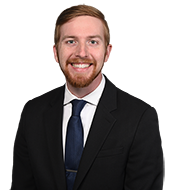2022 Healthcare Employment Law Year in Review
Healthcare employment law was once again a critical focus for many legislative bodies in 2022. While much of our 2021 Year in Review focused on how states addressed the COVID-19 pandemic itself, most notably with respect to vaccine mandates, the theme of 2022 appeared to be states reacting to corollary issues raised by the pandemic. Many states, in response to both the perceptions and realities of how the healthcare industry approached the workers within it, have enacted new laws and policies governing the wages, working conditions, and rights of healthcare workers. The federal government has also issued guidance pertaining to certain topics. This alert provides an overview of many of these new legal standards and provides suggestions for navigating them.
Federal Agencies Issue Joint Guidance Regarding Nondiscrimination in Telehealth
The U.S. Department of Health & Human Services’ Office for Civil Rights and the U.S. Department of Justice’s Civil Rights Division promulgated “Guidance on Nondiscrimination in Telehealth: Federal Protections to Ensure Accessibility to People with Disabilities and Limited English Proficiency.” The guidance explains circumstances in which individuals with disabilities and individuals with limited English proficiency may face barriers to accessing telehealth services, even if inadvertently. The guidance also provides examples of reasonable modifications healthcare providers can adopt, such as providing additional support to patients before, during, and after a virtual visit, to avoid unequal treatment in providing telehealth services. The joint guidance demonstrates the federal government’s focus on examining complaints of discrimination in telehealth, including by providing links for potentially aggrieved individuals to file complaints against providers.
EEOC Issues Updated Guidance on Religious Accommodations for COVID-19 Vaccines
Although employers are subject to reasonable accommodation requests based on disability under the ADA, and based on sincerely held religious beliefs and practices under Title VII, many employers did not have as extensive experience in receiving and evaluating religious accommodation requests. During the pandemic, there was a significant increase in the number of religious accommodation requests, particularly in relation to COVID-19 vaccine employer mandates. There was also concern about public reports and anecdotes of employers rejecting religious accommodation requests broadly or not having adequate procedures to properly evaluate the influx of such requests. To address concerns like these and provide compliance assistance to employers, and also to protect individuals with sincerely held religious beliefs under Title VII, the Equal Employment Opportunity Commission (EEOC) issued guidance on how to appropriately process and evaluate these requests. The EEOC also provided a copy of its religious accommodation intake form as an example for employers. The EEOC’s guidance also explained how employers should begin with the assumption that the religious belief is sincere and indicated steps employers must take if they have an objective basis to test or challenge whether a religious belief is sincere. Finally, the EEOC set out its position with regard to how employer undue hardship claims should be evaluated.
EEOC Issues New Workplace Guidance Regarding COVID-19 Testing
Mandatory medical tests in the workplace are generally subject to a job-related/business necessity analysis under the Americans with Disabilities Act. During the majority of the COVID-19 pandemic, the EEOC had been taking the position across the board that COVID-19 testing satisfied this standard. In July 2022, the EEOC updated its guidance to indicate that an evaluation needed to be done on a case-by-case basis to determine whether COVID-19 testing satisfied this standard. The factors the EEOC indicated should be considered include the level of community transmission, vaccination status of employees, the types of jobs at issue (i.e., whether they come into contact with others, including medically vulnerable individuals), CDC guidance, and other factors as well.
EEOC Releases Report Evaluating First-Time Collection of Compensation Data
On July 28, 2022, a panel of the National Academies of Science, Engineering, and Medicine (National Academies panel or the panel) released its Consensus Study Report (“Report”) evaluating the EEOC’s historic, first-time collection of pay data from certain private employers and federal contractors. Motivated by reported pay disparities among employees—particularly for women and women of color-- the EEOC collected 2017 and 2018 pay data through the EEO-1 Form between July 2019 and February 2020. The EEOC subsequently engaged the National Academies to independently evaluate the data and provide recommendations for future collections.
Key recommendations and conclusions of the report included confirming that federal pay data collection is a necessary tool to effectively identify and combat pay discrimination. The Report also concluded that the data collected will help the EEOC prioritize investigations and its allocation of resources, identify systematic discrimination, and analyze various workplace pay gaps. As for its analysis of the data, the panel found significant pay gaps based on race, sex, and/or ethnicity within Silicon Valley technology firms, which it noted were worthy of further investigation. Going forward, the panel recommended that the EEOC take steps to broaden and strengthen its data collections to advance pay equity and proposed several modifications for any future collection, including that the EEOC expand its list of employers required to provide data and improve data collection from professional employer organizations.
In April 2022, EEOC Commissioner Keith Sonderling warned that the pay data collection on the EEO-1 report would return—though any future collections would be preceded by public notice, a public hearing, and robust opportunities for public input. In the meantime, the EEOC is examining the National Academies Report and will use it to guide its approach to any future pay data collection.
Several States Enact New Laws Regulating Use of HealthCare Staffing Agencies
During the COVID-19 pandemic, many healthcare providers turned to healthcare staffing agencies to address increased demand for and decreased availability of nurses and other healthcare professionals. The swift uptick in the hiring of healthcare professionals through staffing agencies, including travel nurses, has caused state and federal lawmakers and healthcare providers to seek increased regulation of the industry. In 2022, seven states enacted or proposed laws generally aimed at enhancing government oversight of the industry, addressing anticompetitive activities by staffing agencies, and defining the roles and responsibilities of staffing agencies in these relationships. Additionally, while perhaps prompted by these states’ public health emergency declarations, these laws are not limited by or tied to the length of such emergency declarations. Below is a summary of the laws enacted in Connecticut, Illinois, Iowa, Louisiana, Pennsylvania, and Oregon.
Connecticut
On 23 May 2022, Governor Ned Lamont signed House Bill 5313 and Public Act No. 22-57 (PA 22-57) was enacted. Under PA 22-57, by 1 January 2023, “temporary nursing services agencies” must have registered with and paid a registration fee to the Connecticut Department of Public Health (DPH) if they
want to continue to operate in the State of Connecticut. The registration must be done annually thereafter. In addition, by 1 July 2023, agencies must submit cost reports that include information about annual revenues and costs, employee headcount and locations, average fees charged by type of nursing personnel and type of healthcare facility, and any other information the commissioner of public health requests. The law further obligates agencies and healthcare entities to enter into written agreements that include assurances that the assigned nursing personnel have appropriate credentials.
Agencies and entities that violate certain sections of PA 22-57 are subject to penalties of up to US$300 per offense. In addition, the law provides that anyone aggrieved by an act of a temporary nursing services agency can petition the Connecticut Superior Court for relief. The law also allows the commissioner of public health to ask the attorney general to bring a civil action in Hartford Superior Court for injunctive relief to restrain further violations of certain sections of the law.
PA 22-57 also requires the commissioner of public health to establish requirements for temporary nursing services agencies, including minimum qualifications for nursing personnel, and obligates the commissioner of social service to submit a report that, among other things, identifies changes needed to regulate rates charged by nursing services agencies and sets maximum rates for various services.
Illinois
Effective 1 July 2022, Illinois amended its Nurse Agency Licensing Act (NALA Amendment) with the passing of House Bill 4666. The NALA Amendment requires nurse staffing agencies to fully disclose charges to healthcare facilities and agency compensation in new contracts with healthcare facilities. The law also requires agencies to submit quarterly reports that must include the average amounts of healthcare facility charges, employee compensation, and labor-related costs. In addition, the Illinois Department of Labor must publish an annual report by county of the average amounts paid to employees and charges to healthcare facilities.
The amendment also prohibits the following conduct by nurse staffing agencies:
- Recruitment of new or potential employees on the physical premises of a healthcare facility.
- Including liquidated damages clauses and clauses that provide for conversion fees, employment fees, buy-out fees, placement fees, and similar compensation in contracts when a healthcare facility hires an agency employee staffed at the facility as a permanent employee.
- Including non-compete covenants with nurses and certified nurse aides. Covenants not to compete are defined in the act as “an agreement between a nurse agency and an employee that restricts the employee from performing: (1) any work for another employer for a specified period of time; (2) any work in a specified geographic area; or (3) any work for another employer that is similar to the work the employee performs for the employer that is a party to the agreement.”
- Paying wages to agency employees that do not match the wages listed on their agency contracts (as submitted to the Illinois Department of Labor).
The amendment defines “employee” as a nurse or certified nurse aide. A “nurse agency” is defined as “any individual, firm, corporation, partnership, or other legal entity that employs, assigns[,] or refers nurses or certified nurse aides to a healthcare facility for a fee.”
Iowa
On 17 March 2022, Governor Kim Reynolds signed House File 2521 into law and Chapter 135Q of the Iowa Code (Chapter 135Q) took effect. The law places significant responsibility on healthcare employment agencies regarding agency workers working for healthcare entities, prohibits non-competes or other restrictions on agency workers, and applies retroactively to any contracts entered into on or after 1 January 2019. Chapter 135Q applies to most healthcare staffing agencies operating in Iowa, broadly defining both “healthcare employment agency” and “healthcare entity.”
Under Chapter 135Q, healthcare employment agencies must do the following:
- Each separate location of a healthcare employment agency operating in the State of Iowa must register annually with and pay a US$500 registration fee to the Department of Inspections and Appeals (DIA), which is responsible for inspecting and licensing or certifying healthcare providers and suppliers, among other entities.
- Ensure that workers comply with applicable requirements and qualifications of healthcare entity personnel, such as licensing, certification, training, health, and continuing education requirements and standards.
- Maintain records for workers and provide required documents to regulators.
- Maintain professional and general liability insurance coverage with a minimum per occurrence coverage of US$1,000,000 and aggregate coverage of US$3,000,000 to insure against loss, damage, or expense incident to a claim arising out of the death or injury of any person because of negligence or malpractice in the provision of services by the agency or an agency worker.
- Submit quarterly reports to the DIA for each healthcare entity participating in Medicare or Medicaid with whom the agency contracts.
Under Chapter 135Q, healthcare employment agencies must NOT do the following:
- Restrict agency workers’ employment opportunities through contractual non-competes with the agency workers individually or healthcare entities.
- Include “finder fee”/“penalties” in the form of contractual liquidated damages, employment fees, or other compensation if the agency worker is subsequently hired as a permanent employee by the healthcare entity.
If healthcare agencies include such clauses in their contracts, the contracts are unenforceable.
Finally, agencies that violate Chapter 135Q are subject to various penalties and punishments, including immediate revocation of registration if an agency knowingly provides to a healthcare entity an agency worker who has an illegally or fraudulently obtained or issued diploma, registration, license, certification, or background check.
As of the time of publication, Iowa is considering adopting final regulations that provide additional guidance on Chapter 135Q.
Louisiana
On 17 June 2022, Governor John Bel Edwards signed Louisiana House Bill 958 into law, otherwise known as the “Nurse Staffing Agency Licensing Law” (Louisiana Law). The Louisiana Law took effect on 1 August 2022. Its stated purpose is to “authorize the Louisiana Department of Health to promulgate and publish rules and regulations to provide for the licensure of nurse staffing agencies.” The Louisiana Law defines a “nurse staffing agency” as any “person, partnership, corporation, unincorporated association, or other legal entity that employs, assigns, or refers nurses or certified nurse aides to render healthcare services in a healthcare facility for a fee.” It requires all nurse staffing agencies to obtain a license and pay a biennial fee of US$1,200.00.
The Louisiana Law also prohibits agencies from engaging in the following conduct:
- Requiring agency employees to engage in recruitment efforts as a condition of employment.
- Offering financial incentives to agency employees for recruiting permanent employees of healthcare facilities to be employees of the nurse staffing agency.
- Charging a fee for conversion of nurse staffing agency employees into permanent employees of the healthcare facility, except under certain conditions, including if the fees are payable by the facility and reduced pro-rata based on the length of time the agency employee provided services on behalf of the nurse staffing agency, etc.
Pennsylvania
On 3 November 2022, Governor Tom Wolf signed House Bill No. 2293 into law, an amendment to the Healthcare Facilities Act, aimed at enforcing healthcare staffing agencies’ compliance with licensing and certification qualifications, as well as insurance coverage requirements (i.e., medical malpractice coverage, workers’ compensation coverage). To that end, the law:
- Requires “temporary healthcare services agencies” operating in Pennsylvania to register annually with the state and pay a US$500 registration fee.
- Mandates that the registration list each separate location within the agency and specify the policies and procedures for how the agency’s records “shall be immediately available at all times to the department upon request, except for those records subject to confidentiality protection under Federal and State law.”
The law also prohibits temporary healthcare services agencies from restricting employment opportunities for their staff.
The law defines a “temporary healthcare services agency” as “a person engaged for hire in the business of providing or procuring temporary employment in healthcare facilities for healthcare personnel,” excluding individuals providing temporary services. The law defines “healthcare personnel” as a nurse aide, a registered nurse, a licensed practical nurse, and a direct care staff person.
Oregon
On 23 March 2022, Governor Kate Brown signed Senate Bill 1549 into law and Oregon Laws 2022 Chapter 92 (Chapter 92) took effect. Chapter 92’s requirements apply as of 1 July 2023. Under Chapter 92, all “temporary staffing agency” locations must register with and pay a fee to Oregon’s Health Licensing Office (HLO). The registration must include, among other things, names, addresses, and
fingerprints (for purposes of background checks) of the agency’s officers and directors and the agency’s organizational documents.
The law defines a “temporary staffing agency” as an entity that operates in Oregon “for the purpose of providing temporary work to personnel providing healthcare services or assistance with activities of daily living for or on behalf of entities that engage the temporary staffing agency.” Interestingly, Chapter 92 defines “personnel” to include individuals “regardless of whether they are licensed or otherwise authorized by the state to practice a healthcare occupation or profession, who provides healthcare services or assistance with activities of daily living . . . for or on behalf of an entity that engages the temporary staffing agency with which the individual is associated.”
Similar to laws passed in 2022, Chapter 92 places responsibility on staffing agencies to ensure workers are certified and qualified. However, unlike some 2022 staffing agency laws, Oregon’s law permits temporary staffing agencies and healthcare entities to charge a fee if they hire the other’s employees as permanent staff if: (1) the agency or entity directly solicits or attempts to solicit the employee, and (2) the agency and entity’s contract provides for such fees.
Chapter 92 obligates the HLO to publish a website that lists temporary staffing agencies authorized under the law, to discipline temporary staffing agencies for violations, and to impose penalties of up to US$500 per day per violation.
At the end of 2022, the HLO solicited contact information for businesses that would like to be involved in the rulemaking process and receive information about the law.
Arizona Increases Flexibility in Employment Status for HealthCare Professionals
Arizona has removed certain regulatory barriers affecting the majority of licensed healthcare workers in the state by expanding their business formation opportunities. Senate Bill 1637, signed by then-Governor Doug Ducey in May 2022, permits most healthcare professionals to practice as any form of business entity existing under Arizona law themselves, or to work as an employee for any form of business entity in Arizona. This law expressly exempts licensed optometrists, however, which have their own statutory scheme governing practice requirements.
California Expands Nurse Practitioner Authority
Assembly Bill 890 (AB 890), which was signed by Governor Gavin Newsom in 2020, went into full effect on 1 January 2023 and gave nurse practitioners (NPs) a pathway to working independently from direct physician supervision. The law creates two new categories of NPs. The first category is a “103 NP” who works under the provisions outlined in Business and Profession Code Section 2837.103. A 103 NP works in a group setting with at least one physician and surgeon within the population focus of their national certification. This first “phase” allows NPs to practice independently, but they can consult a physician if needed. Authority to practice as a 103 NP is not automatically granted. Rather, an NP who wishes to practice without standardized procedures must first apply to the Board of Registered Nursing for special certification.
The second category is a “104 NP” who works under the provisions outlined in Business and Profession Code Section 2837.104. A 104 NP may work independently within the population focus of their national certification. The law requires an individual to work as a 103 NP in good standing for 4,600 hours or three years before they are eligible to apply to become a 104 NP.
As a result of this phased-in approach, eligible 103 NPs will not be able to become fully independent until 2026, at the earliest. NPs with full-practice authority can practice within the complete scope of their license without physician supervision. Advocates of AB 890 say that the measure will give Californians greater access to primary care and mental health treatment, for which the state has a shortage of available medical providers.
California Simplifies Background Check Process for Community Care Facility Caregivers
On 27 September 2022, Governor Gavin Newsom signed Assembly Bill 1720 (AB 1720), which simplifies the criminal background check process for home care aides and caregivers in community care facilities. California law prohibits persons with certain criminal convictions from working in caregiving facilities or from registering as a home care aide unless the person receives a criminal record clearance or criminal record exemption from the California Department of Social Services (CDSS). The standard exemption process often takes more than 100 days.
AB 1720, which went into effect on 1 January 2023, allows for a simplified exemption process for individuals who meet certain criteria, which will create occupational opportunities for people with old conviction records and assist California caregiving facilities with satisfying the increasingly high demand for caregivers. CDSS will still have the discretion to require an individual who is otherwise eligible for a simplified exemption to complete the standard exemption process. Further, being granted a simplified exemption does not relieve the person from compliance with other background check requirements.
The law also removes the requirement that an individual sign a declaration under penalty of perjury regarding prior criminal convictions and prohibits CDSS from requiring an individual to disclose their criminal history information prior to receipt of live scan results. Advocates of AB 1720 say that this requirement often led applicants to either share information they were not required to disclose or unintentionally omit information because they misremembered or misinterpreted their conviction history.
California Extends Meal and Rest Periods to Hospital Employees
Effective 1 January 2023, Senate Bill 1334 (SB 1334) extends existing meal and rest period requirements to public sector healthcare employees who provide or support direct patient care in a general acute care hospital, clinic, or public health setting. Public sector healthcare employers include the state, municipalities, and the Regents of the University of California. Note that these requirements already are applicable to private sector employers. This bill also exempts employees covered by a valid collective bargaining agreement that addresses meal and rest periods.
More specifically, SB 1334 requires public sector healthcare employers to provide an unpaid 30-minute meal period to covered employees who work over five hours, and an additional unpaid 30-minute meal
period for employees who work more than 10 hours in a shift. Employees may waive meal periods or take on-duty meal periods, as provided by existing law. Employers must also provide a rest period based on the total hours worked daily at the rate of 10 minutes net rest time per four hours or major fraction thereof. An employer must pay premium pay for failing to comply with the statutory meal or rest period requirements.
Delaware Updates Mental Health Reporting Requirements for Physicians
Senate Bill 300 (SB 300), signed by Governor Jay Carney, amends the state’s requirements for reporting concerns regarding a physician’s ability to practice medicine to address stigmas for physicians to report physical and mental health issues out of fear of losing their licensure. SB 300 modifies the definition of an “inability to practice medicine” to include “a mental or physical disability that prevents the physician’s ability to practice medicine in a fully competent and professional manner with reasonable skill and safety to patients.” It also clarifies the circumstances by which such a mental or physical disability or serious health condition will not prevent a physician’s ability to practice medicine: (1) “when the condition is reduced or ameliorated because of ongoing treatment, with or without medication,” (2) “participation in a monitoring program”; or (3) “because of the field of practice, the setting, or the manner of the physician’s current medical practice.”
Florida Increases Minimum Wage for Medicaid Provider Workers
Florida has raised the pay of employees and independent contractors working for all nursing homes and certain Medicaid providers. Florida’s budget, adopted on 3 June 2022, requires Medicaid providers, including nursing homes who receive Medicaid funds, to certify that they are paying each “direct care worker”—whether employee or independent contractor—a minimum of US$15 per hour. The mandate exempts certain categories of Medicaid providers who bill exclusively under certain feed schedules, including, for example, the “Early Intervention Services Fee Schedule.” Direct care workers may bring civil actions for violations.
Louisiana Enhances Protections for HealthCare Workers Against Workplace Violence
Louisiana has adopted new measures to address, mitigate, and prevent violence against healthcare workers. Louisiana Governor John Bel Edwards signed Act No. 461 into law on 21 June 2022, which imposes new requirements on healthcare facilities aimed at increasing worker safety. Healthcare facilities must post signs in conspicuous and publicly accessible locations warning that they will not tolerate violence against healthcare workers and that any violence committed against such workers could result in felony convictions. Healthcare facilities must also develop and maintain a workplace prevention plan that addresses several requirements ranging from annual workplace violence prevention training to developing systems for responding to and investigating violent incidents. The law also mandates healthcare facilities to report within 24 hours any incident that causes violence, involves the use of a firearm or dangerous weapon, or involves an urgent or emergent threat to healthcare personnel.
Maryland Creates New Reporting Requirements for Certain Residential Services Agencies
Following enactment of HB544, residential service agencies receiving Medicaid reimbursement to provide home care or similar services by using personal care aides must report to the Maryland Department of Health by 1 October of each year the number of personal care aides they classify as employees and independent contractors, respectively. The Maryland Department of Health must collect the reported information and submit its own report to the state’s Senate Finance Committee and its House Health and Government Operations Committee by 1 July the following year that details Medicaid reimbursement rates, costs of delivering services, and aggregated employment classifications of individuals who provide personal care. This report’s information must be in the aggregate only and cannot identify any specific residential service agency.
New Jersey Becomes First State to Require Employment Security for Workers Following a Merger or Acquisition
Effective 16 November 2022, New Jersey healthcare facilities and home-care services undergoing a change in control must provide employment security to all non-managerial employees affected by the change.
Senate Bill No. 315 (the New Jersey Act), the first state law of its kind, creates robust, affirmative obligations for both predecessor and successor employers. Any healthcare entity undergoing a change in control must guarantee continued employment to all affected eligible employees for at least four months, and must offer employment to any eligible employee who performs satisfactorily during that period. The law will have a significant impact on all healthcare-entity transactions in New Jersey, and affected employers should be aware of these requirements well before a change in control takes place.
The law contains several important definitions to contour its scope of application. For example, it defines an “eligible employee” as “any person employed at an affected healthcare entity during the 90-day period immediately preceding a change in control of a healthcare entity,” as well as any previously discharged employee with agreed-upon recall rights with the former healthcare entity employer. Notably, however, the law does not apply to managerial employees. It also defines a “change in control,” identifying it as either (1) any “sale, assignment, transfer, contribution[,] or other disposition of all or substantially all of the assets used in a healthcare entity’s operations” or of a controlling interest in the healthcare entity, such as by consolidation, merger or reorganization; or (2) any “event or sequence of events, including a purchase, sale, or termination of a management contract or lease, that causes the identity of the healthcare entity employer to change.” The law also clarifies that a change in control “shall be defined to occur on the date of execution of the document effectuating the change.”
In addition, New Jersey healthcare employers contemplating a change in control must, at least 30 days before the effective date of the change:
- Notify eligible employees of their rights under the New Jersey Act;
- Post a summary of eligible employees’ rights in conspicuous locations in the workplace;
- Provide a list with the name, address, date of hire, phone number, wage rate, and employment classification of each eligible employee to both the applicable collective bargaining representatives (if any) and the successor entity.
Successor entities have their own obligations, including:
- The successor employer must offer, in writing, employment to eligible employees for a four-month “transition period” at the same base rate of pay, paid time off, and total benefits that they received prior to the change in control, including healthcare, retirement, and education benefits. Successor employers must keep these offers open for at least 10 business days.
- During the four-month transition period, the successor employer must offer all previously available employment positions to eligible employees who previously held positions with the former employer until all available employment positions are filled or no more eligible employees are available.
- If the total number of available positions is less than the total number of eligible employees at any time during the four-month transition period, the choice of employees to be employed must be based on seniority and experience.
- During the four-month transition period, employees who accept employment with the successor employer may be discharged only for cause or as part of a reduction in force, subject to the seniority and experience requirement included in the law.
- At the end of the four-month transition period, the successor entity must provide a written performance evaluation of each retained employee. The successor entity must offer the retained employee continued employment if the employee’s performance during the transition period is satisfactory. Notably, the law does not define what constitutes “satisfactory” performance, so employers may have some latitude in making this determination.
- The successor employer must also keep a written record of each offer of employment and each evaluation completed for at least three years from the date of the offer or the evaluation. Each record must include the name, address, date of hire, wage rate, employment classification, and phone number of the employee. The successor employer must provide these records to employees or their representatives upon request.
The law incentivizes compliance by creating a robust private cause of action for eligible employees who are affected by a change in control but not guaranteed employment. Such employees may seek injunctive and equitable remedies, including reinstatement, and the same remedies available for other wage violations, including liquidated damages.
The law does not limit, delay, or prevent the recognition of a collective bargaining representative between the successor employer and the employees of the former employer’s representative. New Jersey healthcare employers contemplating a change in control with a unionized workforce should consider how the law may create obligations for the successor to recognize and bargain with the predecessor’s union, or to assume pre-existing collective bargaining agreements.
New York Institutes Penalties for Mandatory Overtime Violations Regarding Nurses
New York has enacted new penalties for healthcare employers that violate state law prohibiting mandatory overtime for nurses. Under existing law, a healthcare employer cannot require a nurse to work mandatory overtime, with four exceptions: (1) a healthcare disaster; (2) a government-issued declaration of emergency; (3) an emergency from the healthcare employer that satisfies certain requirements; and (4) an ongoing medical or surgical procedure on which the nurse is actively engaged and whose presence is necessary to ensure the health and safety of the patient. Now, following enactment of A286A/S1997A, which Governor Kathy Hochul signed on 30 December 2022, New York law contains penalties for employers who violate these requirements of US$1,000 for the first violation, US$2,000 for a second violation, and US$3,000 for the third and each subsequent violation. Additionally, the employer must pay the aggrieved employee “an additional fifteen percent of the overtime payment” as damages.
Lawyers with K&L Gates’s Labor, Employment and Workplace Safety practice group regularly advise healthcare industry employers on compliance on these and other laws and regulations affecting their workforce.
This publication/newsletter is for informational purposes and does not contain or convey legal advice. The information herein should not be used or relied upon in regard to any particular facts or circumstances without first consulting a lawyer. Any views expressed herein are those of the author(s) and not necessarily those of the law firm’s clients.











